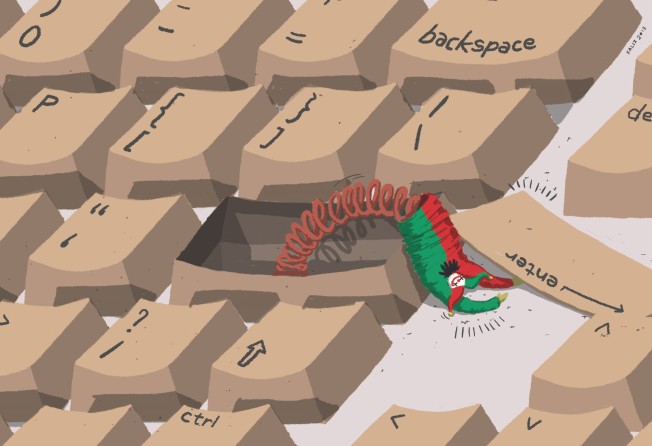Trading error sparks nationwide probe
Mainland regulators to check systems at financial companies after Everbright fiasco

The trading mishap caused by Everbright Securities has raised the hackles of the regulators, who will soon launch a probe into the trading systems at financial institutions nationwide.
In focus is arbitrage trading based on pre-programmed mathematical calculations, or "algo", or "quants", which market watchers say mainland firms may have embraced without fully understanding the risks involved.
The Shanghai Stock Exchange is also considering setting up a circuit-breaking mechanism as part of efforts to avoid a repeat of the August 16 trading error that triggered the biggest swing in its benchmark index since 2009.
The exchange would also consider allowing the cancelling of trades in incidents similar to the erroneous buy orders of Everbright, an unidentified spokesman from the exchange said on its Weibo platform yesterday.
The exchange was also looking into allowing investors to buy and sell the same stock on the same day, to protect the rights of small investors, the spokesman said.
"Mainland fund managers are only primary school pupils and they shouldn't have dared trying their hand at exercises meant for high school students," said a source close to the China Securities Regulatory Commission. "Unfortunately, the regulator wasn't fully aware of the risks and it has now decided to make amends for the mistake."
Program trading - an investment strategy driven by a computer programmed to respond to pre-selected conditions - has increased in popularity on the mainland since the launch of stock index futures in 2010, which created an arbitrage system for fund managers.
Financial firms have begun using these computer-driven trading systems that made and lost fortunes for their early adopters in Western markets. In the process, trade values on China's quant fund industry have grown to billions of yuan, with nearly all institutional investors keen on expanding the businesses.
The regulator is believed to have been accommodating of "quant" trading because it thought that the trades were a negligible proportion of the mainland mutual fund assets, estimated at more than three trillion yuan (HK$3.8 trillion).
Program trading, unlike portfolio investing, uses statistical models to find predictable patterns in financial data to identify buying or selling opportunities.
Everbright said a computer glitch triggered billions of yuan in buy orders that drove the market up nearly 6 per cent in just a few minutes. It admitted that the "firewall" that should have been activated automatically to halt trading failed to work.
"China's fund managers are immature but fearless," said Dong Jun, a hedge fund manager. "They thought it's a smart way of making money in a weak market, but they didn't understand that a small error, either a human error or computer glitch or a broadband disconnection, could result in chaos and huge losses."
Everbright lost at least 200 million yuan while other investors may have lost billions.
Additional reporting by Reuters